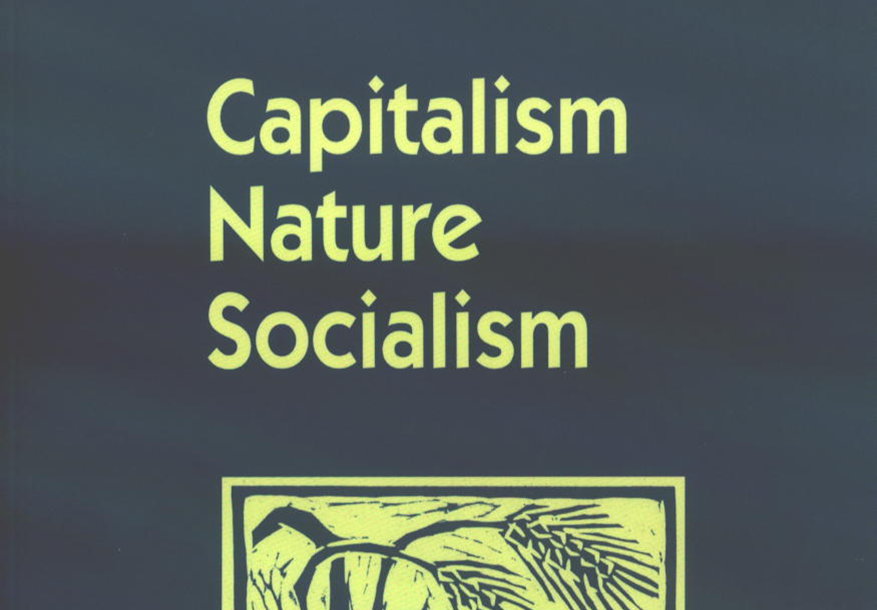En el número de setembre de la revista Capitalism Nature Socialism (volum 28) s’hi publiquen tres articles vinculats a membres d’ENT. Dos d’aquests tres articles tenen com a autor Diego Andreucci (ENT) i un altre compta amb l’autoria de Santiago Gorostiza (ENT fellow).
Aquí podeu trobar els títols, autors i abstracts:
—
Capital Accumulation, Hegemony and Socio-ecological Struggles: Insights from the ENTITLE Project
Diego Andreucci, María Jesús Beltrán, Irina Velicu & Christos Zografos
This special issue presents findings and reflections of scholars who participated in the European Network of Political Ecology (ENTITLE). By mobilising conceptual frameworks from several strands of Marxist and post-structuralist theory—and empirically engaging with a range of historico-geographical processes—the articles in this issue contribute to debates in political ecology in two main ways. First, they critically analyse the political economy and ecology of contemporary capitalism, with an emphasis on accumulation strategies associated with the uneven expansion and crisis of neoliberalism. Specifically, they unpack and critically extend the frameworks of “accumulation by dispossession” and “nature’s neoliberalisation” to engage with, among other cases, the political ecology of “austerity” in Southern Europe; historical and contemporary cases of “capital-driven disasters”; and political ecological dynamics taking place around relationships of “rent”. Second, the authors of this special issue analyse new and re-emerging forms of socio-ecological resistance and contestation, including both distributional struggles and movements against “commons’ enclosures”. Moreover, they focus on how struggles can (and do) move from contesting capitalist forms of dispossession towards creating alternative “hegemonic” projects and blocs, by critiquing received “common sense” and constructing and performing alternative political ecological imaginaries informed by principles of solidarity and “commoning”. Taken together, the articles in this special issue present new ways of thinking and enacting political and ecological struggles outside established scholarly traditions and conventional disciplines.
—
“Value Grabbing”: A Political Ecology of Rent
Diego Andreucci, Melissa García-Lamarca, Jonah Wedekind & Erik Swyngedouw
This paper aims to redress the under-appreciated significance of rent for political ecological analysis. We introduce the notion of value grabbing, defined as the appropriation of (surplus) value through rent. A concept that is analytically distinct from accumulation, rent is both a social relation and a distributional process that is increasingly central to the reproduction of contemporary capitalism. Emphasis is placed on the “grabbing” of value in order to shed light on the processes at work by which surplus value is distributed unevenly between different classes and fractions of classes. A focus on rent within political ecology, we argue, can help us distinguish between two organically related but analytically distinct “moments”: (a) the creation of property rights that establish rent relations and (b) the struggle over the appropriation and distribution of surplus value generated by the rent relation itself. We explore some of the implications of this perspective for understanding new forms of socio-ecological struggles and their varied relations to the state. We maintain that a value-grabbing perspective has far-reaching consequences for political ecology, as it provides a sharp conceptual tool for situating a wide range of socio-ecological conflicts and movements as class struggles over value appropriation and distribution.
—
Beyond “Socially Constructed” Disasters: Re-politicizing the Debate on Large Dams through a Political Ecology of Risk
Amelie Huber, Santiago Gorostiza, Panagiota Kotsila, María J. Beltrán & Marco Armiero
Questions of dam safety and hazard potential most often do not take center-stage in contestations and articulations concerning large dams. Through a comparative study of two of Europe’s most emblematic dam disasters – Vajont (Italy) and Ribadelago (Spain) – and the ongoing conflict over the safety of the Lower Subansiri Hydroelectric Project in Northeast India, this article argues that the damage caused by dam disasters is often not unavoidable or unforeseen but instead allowed to happen. Our cases show that power relations, economic pressures and profit influence “risky” dam management decisions, often disregarding the vernacular knowledge of concerned communities and silencing critical voices that do not fit dominant narratives of modernization and progress. We posit that an essential requirement for re-politicizing the question of dam safety is to unpack the apolitical notion of “socially constructed disasters,” thinking instead about “capital-driven destructions.” By emphasizing resistance against dam projects and against dominant risk discourses across space and time, this article seeks to underline the legitimacy of past and ongoing struggles surrounding the construction of large dams.

